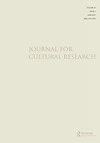What should academics do about conspiracy theories? Moving beyond debunking to better deal with conspiratorial movements, misinformation and post-truth
IF 0.6
Q1 CULTURAL STUDIES
引用次数: 16
Abstract
ABSTRACT Many people use conspiracy theories to make sense of a changing world and its ever more complexif social structures (e.g., international financial systems, global bodies of governance), tragic events (e.g., terrorist attacks, man-made catastrophes, or natural disasters), or socio-political and economic issues (e.g., security, migration, distribution of resources, health care). The widespread flourishing of conspiracy theories in this context has prompted much interest from the academic community. There is often an expectation that it is the responsibility of researchers to engage with conspiracy beliefs by debunking them. However, like everything that relates to conspiracy theories, even the subject of debunking is not straightforward. An answer to the question as to whether researchers should debunk conspiracy theories varies across disciplines and schools, and is closely related to specific ethical codes of conduct, research methodologies, and specific approaches to conspiracy theories. While scholars who study this cultural phenomenon from a non-normative and epistemologically neutral position might wish to refrain from debunking conspiracy theories, others who see conspiracy theories as the irrational, overly suspicious and even dangerous ideas of people who don’t quite understand what is ‘really’ going on, might lean towards the debunking stance. In this special issue, we explore different approaches that academics may take in relation to conspiracy theories.学术界应该如何看待阴谋论?超越揭穿,更好地处理阴谋运动、错误信息和后真相
摘要许多人使用阴谋论来理解不断变化的世界及其日益复杂的社会结构(如国际金融体系、全球治理机构)、悲剧事件(如恐怖袭击、人为灾难或自然灾害)或社会政治和经济问题(如安全、移民、资源分配、医疗保健)。在这种背景下,阴谋论的广泛兴起引起了学术界的极大兴趣。人们通常认为,研究人员有责任通过揭穿阴谋信念来参与其中。然而,就像所有与阴谋论有关的东西一样,即使是揭穿真相的主题也并不简单。研究人员是否应该揭穿阴谋论这个问题的答案因学科和学校而异,与具体的道德行为准则、研究方法和阴谋论的具体方法密切相关。虽然从非规范和认识论中立的立场研究这一文化现象的学者可能希望避免揭穿阴谋论,但其他人认为阴谋论是不太了解“真正”发生了什么的人的非理性、过度怀疑甚至危险的想法,他们可能会倾向于揭穿阴谋论。在本期特刊中,我们将探讨学术界对阴谋论可能采取的不同方法。
本文章由计算机程序翻译,如有差异,请以英文原文为准。
求助全文
约1分钟内获得全文
求助全文
来源期刊

Journal for Cultural Research
CULTURAL STUDIES-
CiteScore
1.40
自引率
0.00%
发文量
23
期刊介绍:
JouJournal for Cultural Research is an international journal, based in Lancaster University"s Institute for Cultural Research. It is interested in essays concerned with the conjuncture between culture and the many domains and practices in relation to which it is usually defined, including, for example, media, politics, technology, economics, society, art and the sacred. Culture is no longer, if it ever was, singular. It denotes a shifting multiplicity of signifying practices and value systems that provide a potentially infinite resource of academic critique, investigation and ethnographic or market research into cultural difference, cultural autonomy, cultural emancipation and the cultural aspects of power.
 求助内容:
求助内容: 应助结果提醒方式:
应助结果提醒方式:


